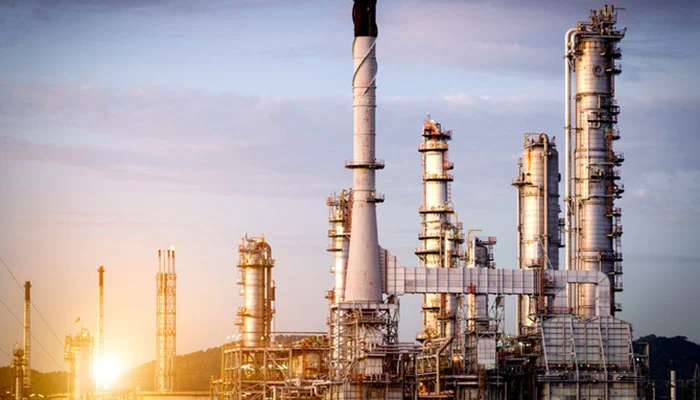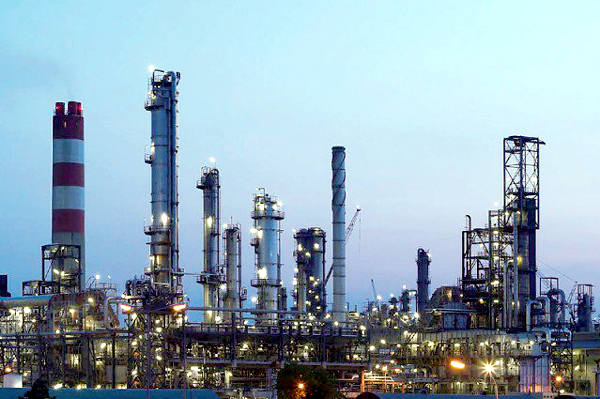Oil refineries are an essential part of any country's energy infrastructure. In Pakistan, the oil refinery sector plays a significant role in meeting the nation's energy demands. As one of the key players in the refining industry, these refineries process crude oil into various petroleum products such as gasoline, diesel, jet fuel, and other essential chemicals. The refining process not only contributes to the energy sector but also supports the country's economy by providing jobs and ensuring the availability of critical products.
This article explores the oil refineries in Pakistan, how they operate, their importance, and the number of refineries currently in operation. We will also discuss the challenges faced by these refineries and their contribution to Pakistan’s energy security.
What is an Oil Refinery?
An oil refinery is a facility where crude oil is processed and transformed into useful petroleum products. These products include gasoline, diesel, kerosene, and petrochemicals. The process involves separating the components of crude oil based on their boiling points through distillation and then further refining these products to meet the required specifications.

In Pakistan, oil refineries are responsible for meeting the domestic demand for petroleum products. The country imports a significant portion of its crude oil, which is then processed in local refineries to produce refined products that are used for transportation, industrial operations, and power generation.
The Role of Oil Refineries in Pakistan's Economy
Oil refineries are crucial for Pakistan's economic development and energy security. Pakistan’s reliance on oil for energy generation, transportation, and industrial activities makes the refinery sector a backbone of the nation’s economy. The refineries not only help reduce the country's dependence on imported petroleum products but also contribute to the creation of jobs, generation of revenue, and support for related industries.
Key Functions of Oil Refineries in Pakistan
-
Crude Oil Processing: Refineries process crude oil into various petroleum products, such as gasoline, diesel, and kerosene, which are essential for everyday activities.
-
Energy Supply: Oil refineries ensure the continuous supply of refined products, reducing Pakistan’s dependence on foreign imports.
-
Economic Contribution: Refineries contribute to the economy by providing employment, generating revenue, and supporting industries like transportation, power generation, and manufacturing.
In conclusion, oil refineries play an essential role in Pakistan's energy sector by processing crude oil into valuable petroleum products. With six major refineries operating across the country, they contribute significantly to the economy and help meet the growing energy demands of the population. Despite facing challenges such as outdated infrastructure and reliance on imported crude oil, the refineries continue to be a vital part of Pakistan’s energy security.
How Many Oil Refineries Are Currently Operating in Pakistan?
As of today, six major oil refineries are operating in Pakistan. These refineries are strategically located across the country to meet the demand for petroleum products. The refineries are spread across major cities, including Karachi, Rawalpindi, and Hub, ensuring that petroleum products are available nationwide. The six refineries currently in operation are:
-
Pakistan Refinery Limited (PRL) – Located in Karachi, PRL is one of the oldest and most established refineries in Pakistan.
-
National Refinery Limited (NRL) – Also situated in Karachi, NRL is one of the largest refineries in the country and plays a key role in producing high-quality refined products.
-
Attock Refinery Limited (ARL) – Based in Rawalpindi, ARL is one of the major refineries in Pakistan, processing crude oil and producing a variety of petroleum products.
-
Byco Petroleum Pakistan Limited – Located in Hub, Byco is a significant player in the refining industry and has a large refining capacity.
-
Parco (Pak-Arab Refinery Limited) – A joint venture between Pakistan and Saudi Arabia, located in Mehmoodkot, Punjab. Parco is one of the most advanced refineries in the country.
-
Eastern Refinery Limited – Situated in Karachi, Eastern Refinery is another important refinery that contributes to Pakistan’s energy needs.
Bullet Points: Key Facts About Oil Refineries in Pakistan
-
There are six major oil refineries operating in Pakistan.
-
These refineries are located in Karachi, Rawalpindi, Hub, and Mehmoodkot.
-
The refineries process crude oil into gasoline, diesel, kerosene, and other essential products.
-
Pakistan imports a significant portion of its crude oil for refining purposes.
-
Oil refineries contribute to energy security and economic growth in Pakistan.
The Working of Oil Refineries in Pakistan
Oil refineries in Pakistan operate through several stages to process crude oil into valuable petroleum products. These processes involve distillation, conversion, and further refining to produce high-quality products.
1. Distillation
The first step in the refining process is distillation, where crude oil is heated and separated into different fractions based on their boiling points. This process creates products such as gasoline, diesel, kerosene, and heavier fractions like asphalt.
2. Conversion
After distillation, the heavier fractions are processed further through conversion techniques such as cracking. Cracking breaks down larger, more complex molecules into smaller, lighter ones, which are more useful as gasoline and diesel.
3. Treating and Blending
The final step involves treating and blending the refined products to remove impurities. This ensures that the products meet the required specifications for use in transportation, power generation, and industrial applications.
4. Storage and Distribution
Once the products are refined and treated, they are stored in tanks and then distributed to various locations through pipelines, trucks, or ships. The products are then made available for sale to consumers, industries, and power plants.
Challenges Faced by Oil Refineries in Pakistan
While the oil refinery sector is vital for Pakistan's energy security, it faces several challenges that hinder its growth and efficiency. Some of the key challenges include:
1. Dependence on Imported Crude Oil
Pakistan’s refineries rely heavily on imported crude oil, making them vulnerable to fluctuations in global oil prices. This dependence on imports increases the cost of refining and affects the overall profitability of the refineries.
2. Aging Infrastructure
Many of Pakistan’s oil refineries operate with outdated infrastructure and technology. This reduces their efficiency and increases operational costs. Modernizing the refineries is essential to improve their capacity and meet the growing demand for petroleum products.
3. Environmental Concerns
The refining process can have significant environmental impacts, including air pollution, water contamination, and waste disposal issues. Refineries need to adopt cleaner technologies and implement better waste management practices to minimize their environmental footprint.
4. Limited Refining Capacity
Pakistan’s refining capacity is limited compared to the country’s growing demand for petroleum products. The refineries are often unable to meet the full domestic demand, leading to an increased reliance on imports to fill the gap.
Numbered List: Challenges Faced by Oil Refineries in Pakistan
-
Dependence on imported crude oil.
-
Aging refinery infrastructure.
-
Environmental pollution and waste management.
-
High operational costs.
-
Limited refining capacity to meet domestic demand.
The Importance of Oil Refineries for Pakistan's Energy Security
Oil refineries are vital to Pakistan's energy security. They ensure a steady supply of petroleum products, which are essential for transportation, power generation, and industrial activities. Without these refineries, Pakistan would face significant challenges in meeting its energy needs, leading to higher import bills and energy shortages.

FAQs About Oil Refineries in Pakistan
1. How many oil refineries are there in Pakistan?
There are currently six major oil refineries operating in Pakistan.
2. What products do oil refineries in Pakistan produce?
Oil refineries in Pakistan produce a variety of petroleum products, including gasoline, diesel, kerosene, jet fuel, and lubricants.
3. Where are the major oil refineries located in Pakistan?
The major oil refineries in Pakistan are located in Karachi, Rawalpindi, Hub, and Mehmoodkot.
4. Why are oil refineries important for Pakistan?
Oil refineries are crucial for Pakistan's energy security as they process crude oil into essential products, ensuring a stable supply of petroleum products for the country’s transportation, industry, and power generation needs.
5. What challenges do oil refineries in Pakistan face?
Oil refineries in Pakistan face challenges such as dependence on imported crude oil, aging infrastructure, and environmental concerns.





.gif)








.gif)







Sign in
to continue to ilmkidunya.com